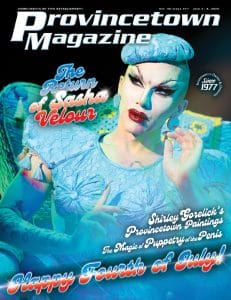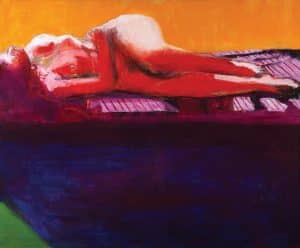by Rebecca M. Alvin
We’re all familiar with the Civil Rights Era, the Summer of Love, Stonewall Riots, and the many other sociopolitical landmarks and movements in relatively recent history, but some hundred years before these progressive advances, many of the same ideas intermingled in the decades just prior to the American Civil War. Like the ‘50s, ‘60s, and ‘70s that we are more familiar with, the 1830s, ‘40s, and ‘50s were ripe with tensions around race, sexuality, and gender equity. Socialism, Free Love, Women’s suffrage, and abolitionist causes intermingled with 19th century Spiritualism, the proliferation of utopian societies, and a general opening up of conversations around previously impossible-to-discuss topics.

If we don’t think of history as a chronological line advancing from the past into the future, but rather as a semi-circular coil moving ultimately from past to present to future, but only doing so through circling back on itself repeatedly revisiting the past before moving forward, we can see how ideas are never entirely new and also not entirely old. In 1830 a young Universalist named John Murray Spear of Lynn, Massachusetts, came to Hyannis to begin his first minister position. He was a passionate abolitionist and advocate for prison reform, reproductive rights, suffrage for women, and many other progressive ideals far ahead of his time.
But he would also come to embrace other controversial ideas. He preached in and around this area for several years before moving on to a New Bedford congregation and discovering Spiritualism, a movement that posited that the spirits of the dead lived on and could communicate through certain mediums and help us live better lives. Spear announced he was one such medium for the spirits of his namesake John Murray (founder of Universalism), as well as Benjamin Franklin, Thomas Jefferson, and other notable people who would help to remake society in a better form by communicating through him.

Nearly 200 years later, Spear’s ideas are being explored in an experimental performance piece at AMP Gallery, here in Provincetown, produced by Fort Point Theater Channel, a theater companythat consists of members engaged in various art forms, from music to dance to puppets and cartooning, living in various locations. The piece, The Spirits Teach Us How to Build the Union Family Sewing Machine in 1862 was collaboratively created and led by Lynn resident Mitch Ahern, who is a musician, creator of musical instruments, and letterpress printmaker as well as an avid history buff and co-artistic director for Fort Point. Originally from Rochester, N.Y., Ahern became very interested in Frederick Douglass who lived in both Lynn and Rochester. It was through research about Douglass that he came to Speare, who was, he says, the person that first introduced Douglass to abolitionist activist William Lloyd Garrison.
“He was a very active abolitionist in like the 1830s, before being an abolitionist was cool,” says Ahern. And while he definitely had a kind of wacky vision by mainstream standards, Ahern emphasizes how incredibly progressive he was for his time. “He really was preaching and connecting this idea that the genders were absolutely equal and intermingled, and that this idea of, you know, masculine dominance over women is incorrect.”
Locally, Nick Thorkelson, an accomplished cartoonist and musician who recently made the shift from part-time to full-time Provincetown resident, and a founding member of the organization, says, “Our group seems to have zeroed in, without deciding to do so, on 19th-century reform movements,” although their work is always tied to contemporary realities even as these figures from earlier movements influence the plays, such as Serf’s Up, which was also performed at AMP just before the pandemic.
The production involves the performers collectively becoming a sewing machine, an invention Spear was passionate about after his original, much grander “Electric Infant”—a kind of mechanical messiah created with electricity, minerals, and fluids, and apparently brought to life by the spirits of those attending its “birth”— failed for multiple reasons, not the least of which was the ire of more traditional locals who ran Spear out of just about every town he went to.
The sewing machine, on the other hand, was more practical. It took the existing industrial sewing machine idea and brought it down to scale for personal home use as part of a larger effort to make women’s domestic lives easier so that they could participate more fully in their communities, and ultimately once they were empowered with the vote, in the governing of those communities.
Fort Point’s production focuses on the unique invention process used by Spear and his collaborators. “They would look at drawings of the hand and the part, and they would physically act out how the machine was supposed to work, like, I’m-a-little-teapot style. And then they would go in the back room, and they’d sleep with each other, and then sleep and dream about it, and then they’d come back out and draw the part and build it. And through that process, they actually made a sewing machine that they sold,” Ahern explains.
It’s a difficult-to-define piece. Ahern says, “This thing is like, you know, is it dance, is it songs, is it history? Comedy? Drama? It’s definitely sort of standing in and around those other genres.”
While the “sex magic” aspect seems outdated and will not be a component of this production, Ahern says Spear and his followers believed in lemonade as a kind of liquid representation of the spiritualist idea of the living and the dead intermingling, as the bitterness and sweetness do in the drink. And so, he says, “We are serving the ceremonial lemonade. How one approaches this sex magic angle is tricky. So, I’m not really stressing that. In the context of the performance, instead of going off and having sex, they have a little dance. People break into a little jitterbug. So that’s historically inaccurate, but I’m not really doing this like a historical piece. It’s more of a freeform happening performance kind of thing.”
Thorkelson says his interest in being a part of this work stems from his interest in how 19th-century reform movements were connected to spirituality in a way that they are not now, but also the spirit of the time period when so much was still open for discussion.
“The biggest source of my understanding of that period is the novel Moby-dick. And when I finally got around to reading it, what amazed me was that for Melville, and for Ishmael, his character, everything is up for grabs. Knowledge is something that’s in formation and everybody who’s thoughtful, gets a chance to weigh in on it. It’s not like quantum physics where you have to go to school for 10 years before you know what they’re talking about. And because everything is up for grabs, the rules of the game are up for grabs, right?”
Fort Point Theater Channel presents Spirits Teach Us How to Build the Union Valley Sewing Machine in 1862 at AMP Gallery, 432 Commercial St., Provincetown, multiple times beginning at 6:30 p.m. on Saturday, September 24. For more information call 646.298.9258 or visit artmarketprovincetown.com.






